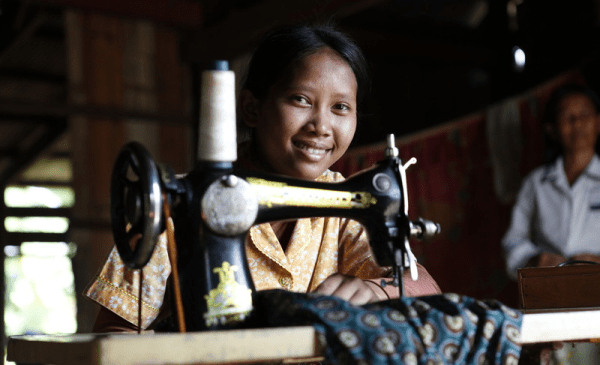
Ending exploitation of home-based women workers
Home-based workers are the hidden seams of the garment sector; while these workers are largely invisible, many parts of the garment industry would not hold together without their contribution. Yet home-based workers are vulnerable to exploitation and economic insecurity.
A new short film by the United Nations looks at the situation of Cambodian home-based women workers. The UN estimates that 85 percent of the Cambodian workforce consists of informal workers—many of whom are home-based labourers. Their film shows why educational and training programs are vital so that these women can stay out of poverty and obtain decent and secure work.
Home-based workers are often isolated which makes it difficult for them to co-ordinate with other workers and achieve a fairer deal. Fortunately, there are now a number of programs and networks which exist to provide resources and community for these workers. One such organisation is Homenet, a regional organisation which encourages the organising of home-based workers’ associations, groups and unions, through which they can voice their demands and concerns and increase their bargaining power.
Cambodian home-based worker Yun Sophea (44 years) undertook training with her local Homenet affiliate to learn about her rights. For women like Yun such educational opportunities and networks can be crucial. “My life is improving because I seek the understanding of rights” says Yun. “We can no longer say that we do not have rights.”
Homenet has two major centres, Homenet South Asia, which has partners in Bangladesh, Sri Lanka, Pakistan, India and Nepal and Homenet South East Asia which has affiliates in Indonesia, Thailand, Laos, Cambodia, Malaysia, the Philippines and Vietnam. The organisation is bringing together women from across these regions to improve visibility of home-worker issues and to campaign for the ratification and implementation of ILO Convention 177 on home work.
Learn More
Watch UN home-worker film
Homenet South Asia
Homenet South-East Asia
Facts on Home-workers
Support home based workers in Australia
Home-based garment workers in Australia, who are often non-English speaking migrants, are also vulnerable to exploitation. You can support their rights through local campaign, FairWear.